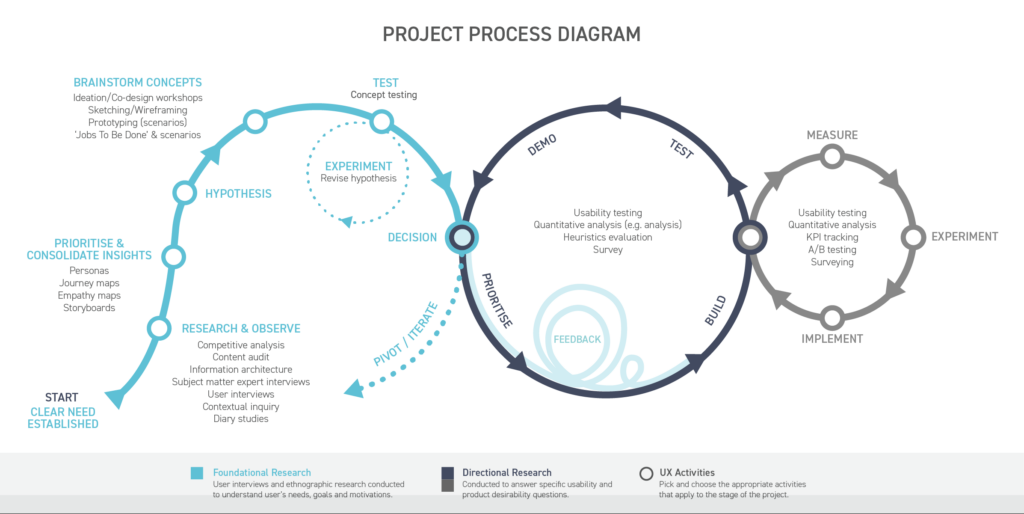Scale up and migrate existing applications to the cloud with ease.
Who should use this service
If you’re a technology leader with an application or website you want hosted in the cloud and need one or more of the following:
- Reliable monitoring and support
- To reduce costs
- To scale up
- To migrate an existing application to the cloud
- To implement continuous integration and continuous delivery
Benefits of cloud services
- Increase reliability
- Save on cloud costs
- Get people you can depend on
- Scale up easily
AWS Well-architected review
We partner with Amazon Web Services to provide vendor-agnostic solutions tailored to your unique situation.
As a certified AWS partner, we work with you to review and analyse your cloud environment to determine how well it aligns with best practice as defined by AWS’ Well-Architected Framework.

Microsoft Azure
We are experts in leveraging Microsoft Azure to drive innovation, scalability, and resilience across your business operations. Our Azure experts provide end-to-end solutions – from cloud migration and application modernisation to advanced data analytics and AI integration.
Whether you need secure storage, seamless data management, or high-performance computing, we tailor Azure’s cloud capabilities to your business needs, enabling smooth transitions to the cloud while maximising cost-efficiency and performance.

We provide a single point of accountability for all of your cloud needs including:
1
Cloud design/cloud architecture
We plan the resources your application needs, enabling the cloud architecture we design to minimise costs without sacrificing performance.
Operating under the shared responsibility model, the cloud provider manages the underlying resources (hardware/OS) and we manage the application’s business requirements.
2
Continuous integration and continuous delivery (CI/CD)
We use infrastructure as code (Terraform) to automate the build, integration and testing of your solution, increasing the reliability and maintainability of your cloud solution.
We improve your system’s stability and efficiency by automatically adapting your infrastructure to increasing traffic and demand. We also provide DevOps services to review your existing cloud architecture and make recommendations to optimise your environment.
3
Cloud migration
We help you migrate existing application and workloads to and from public, private and hybrid cloud environments.
4
Develop cloud applications
We help you develop SaaS applications, leveraging the best cloud computing features.
5
We can provide 24×7 proactive cloud monitoring
Our team of cloud specialists monitor the health of your cloud applications, proactively troubleshooting issues and ensuring your solution is up and running at all times.
6
Cloud resilience, backup and recovery
Fully managed cloud backup and recovery solution ensuring your data is available at all times.
Work with us through one of our two engagement models
To learn more about our two engagement models check out ‘How we engage‘.
Fixed cost AI development
Designed for organisations with a clear application vision
- Predictable, reliable outcomes for your critical initiatives
- Perfect for businesses with clear requirements & defined scope
- Detailed planning, guaranteed delivery & no surprises
Pricing below is indicative, please contact us for a fixed price quote based on your specific scope and requirements.
Small
application
No-code / low-code basic application
2 months
- Scoping workshop with a senior strategist
- Infrastructure set up
- Quality assurance (testing)
- UX design
- Creative design
- Front end development
- Back end development
- Information architecture
- Testing & deployment
$50,000+ GST
Medium
application
Purpose built, custom application
4 months
- Scoping workshop with a senior strategist
- Infrastructure set up
- Quality assurance (testing)
- UX design
- Creative design
- Front end development
- Back end development
- Information architecture
- Testing & deployment
$100,000+ GST
Large
application
Premium, purpose built, fully custom application
6 months
- Scoping workshop with a senior strategist
- Infrastructure set up
- Quality assurance (testing)
- UX design
- Creative design
- Front end development
- Back end development
- Information architecture
- Testing & deployment
$150,000+ GST
Agile Application Development
Ideal for complex projects requiring adaptability and larger budgets
- Continuous improvement for evolving goals
- Ideal for businesses needing flexibility as priorities change
- Collaborate with our team in springs to iterate, adapt and refine your software for maximum impact

Trusted by
















Book a free consult with a member of our C-suite
Cloud services FAQs
1
What is cloud computing?
Cloud computing describes the delivery of on-demand computing services like applications, processing power, and storage from a state-of-the-art data centre. So when you sign up for cloud computing services, you rent enterprise computing infrastructure to power your physical and virtual business operations.
2
Why make the move to the cloud?
Cloud computing demands a strategy that matches your unique business goals. Whether it’s a serverless approach for economic benefits or one that boosts innovation and speed, cloud solutions drive operational efficiency.
Key benefits of moving to the cloud include:
– No upfront costs of running IT infrastructure, exchanging capital expenses with operational expenses
– Redeploy current IT resources to higher-value activities
– Gain a competitive advantage over businesses who devote IT resources to managing infrastructure
– Scale-up on demand by only paying for what you need, when you need it
– Adapt quickly to changing market conditions
– Benefit from economies of scale
– Optimised security features and networked backups
– Choose from public, private or hybrid storage solutions depending on your needs
– Determine the level of control with as-a-service options
– Teams can collaborate from widespread locations with worldwide access
3
What are the different types of cloud computing?
There are three main cloud computing services models. But for the most part, it comes down to a pay-as-you-use model or a fixed-term pricing model that allows you to add/ remove resources and manage data usages and accounts through dashboards or applications.
Infrastructure as a Service (IaaS) is the basic layer of cloud computing and allows you to set up virtual servers and storage in a data centre.
Platform as a Service (PaaS) is a set of tools and services which make it easier for businesses to develop, run and manage applications without building and maintaining the infrastructure typically needed.
Software as a Service (Saas)
is a way of delivering applications over the internet as a service. It is software that is owned, delivered and managed remotely by providers.
4
What service provider should I use?
Deciding which cloud provider is right for you comes down to your unique business needs.
5
How fast can I get someone?
Immediately if the skillset you need is on our bench. If we need to hire for the role it can take one to six weeks. Contact us to check availability.
6
Which cloud providers does your agency work with?
We work with the leading cloud providers including Amazon Web Services (AWS), Microsoft Azure, Google Cloud Platform and other leading cloud providers.
7
What’s the best out of Microsoft Azure vs AWS vs Google Cloud?
When comparing Microsoft Azure, Amazon Web Services (AWS), and Google Cloud Platform (GCP), each has distinct advantages that suit different business needs.
AWS is often the best choice for organisations seeking a mature, comprehensive platform with an extensive range of services. Known for its market-leading position, AWS offers unparalleled scalability and global reach with the largest network of data centres, making it ideal for enterprises requiring diverse, powerful tools for computing, storage, and data analytics.
Microsoft Azure is a top choice for businesses closely integrated with Microsoft products. Its seamless compatibility with Office 365, Windows Server, and SQL Server provides a familiar environment, especially for hybrid cloud solutions and organisations that need a strong platform for running both Windows and Linux-based applications.
Google Cloud Platform (GCP) stands out for companies prioritising data analytics, machine learning, and artificial intelligence. With Google’s robust infrastructure and tools like BigQuery, GCP is often the best fit for data-intensive applications. Its high-speed data processing capabilities make it an excellent choice for organisations focused on innovation and data science.
Each of these cloud providers—AWS, Azure, and GCP—excels in specific areas, and the best choice depends on your organisation’s unique requirements, existing technology stack and growth plans. 4mation will help you understand and choose which cloud provider is best for your organisation.

